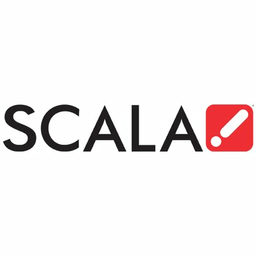
![]()
Scala
Scala is a coding language that bridges the gap between functional and imperative programming.
Alternatives to Scala
Missing a software in the list? We are always happy if you help us making our site even better.
Scala Reviews
We have 1 review for Scala. The average overall ratings is 4.0 / 5 stars.
Overall Opinion: Scala is short for "scaling" and "language", and that's a pretty accurate assessment of the language's strengths. Designed in large part to address many of the issues users have with Java, Scala is designed for versatility. Due to its combination of functional and imperative language functions, it can scale to the demands of users, though there can be a steep learning curve, especially for users with little to no programming experience. Functional programming has long been used in academia, but it hasn't gained as much traction in the business and app development communities. Meanwhile, object oriented programming has the opposite problem. Scala draws from both models to create a system that requires a high degree of logical learning but rewards the programmer who learns the fundamentals. It has a high level of compatibility with Java, making it a great choice for Java coders looking for more range or transitioning into the basics of functional programming. Like other object oriented languages, every value in Scala is also an object, that gives you more control over defining the factors of your code through the use of classes and subclasses. Scala also integrates an elegant system to help mitigate the complications that come from multi-inheritance in more complicated and dense blocks of code. As a statistically type system, it minimizes the risk of poorly defined abstractions throwing a monkey wrench in your program. Support is available for everything from generic classes and upper and lower bound types to variance notification and compound types. While Scala may not have the name brand appeal of larger languages like Python, Java, or C#, it's finding a lot of traction in the programming community. The ability to interoperate organically with Java and JavaScript offers a lot more versatility and provides coders with the best of both worlds. If you can't find out how to make something work in Scala, chances are likely you can cover the gap with existing Java code. Many important modern frameworks, such as Apache Spark, Akka, and Kafka, are built off of Scala, and it's become an important component in the infrastructure of Tumblr, Twitter, and Coursera. Scala comes equipped with a number of free libraries that further improve the utility of the language, and new additions are being made every day. Its developer community is small but passionate, and many are long term developers with years of experience in the field. It's certainly not the best language for a user just getting into programming, but for experienced developers looking for a more elegant alternative to Java or a way to improve their full stack versatility, it's a language worth learning. Like most modern programming languages, Scala is free to use by anyone.
Pros: Offers many of the advantages of both object oriented and functional programming Given its increased use in the field and its complications, companies take developers who know Scala seriously Simple, clear, and efficient once you understand the language's fundamentals
Cons: As a less popular language, there's less support available online Steep curve for learning the language's fundamentals Takes a long time to compile
Features
Screenshots
Scala Videos
PowerDrift brings you the review of the Renault Scala. Find out how it fared on our review. #Renault #Scala #PowerDrift #Review Join #PDArmy: bit.ly Like us on Facebook https://www...
Comments
About This Article
This page was composed by Alternative.me and published by Alternative.me. It was created at 2018-04-29 11:23:14 and last edited by Alternative.me at 2020-03-06 07:50:05. This page has been viewed 6213 times.